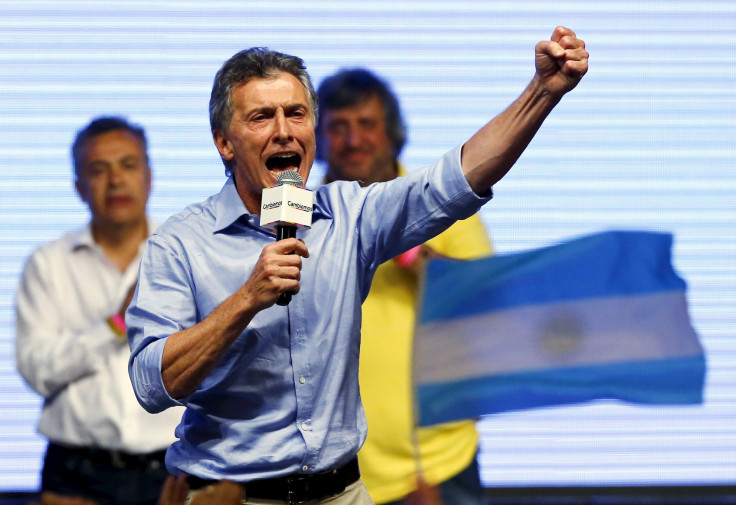
Mauricio Macri has won Argentina’s runoff election, beating President Cristina Fernández de Kirchner’s chosen successor Daniel Scioli and breaking a 12-year streak of Peronist party victories. President-elect Macri pledged to liberalize the economy and reverse the course of his predecessors, who have favored state intervention and a cooler relationship with the U.S. With only 51.5 percent of the vote in Sunday’s head-to-head election, Macri wields a welterweight mandate and can expect strong opposition from the Peronist party, who enjoy support from the majority of Argentina’s unions.
"Today is a historic day," Macri told supporters at a post-election rally, according to BBC’s Wyre Davies. "It's the changing of an era."
President-elect Macri faces will face a number of economic challenges when he takes office, including a decades-long battle with inflation, a recently stagnating economy, and an ongoing conflict with so-called “vulture funds;” American debt holders who are demanding full repayment of old loans.
Macri has pledged to cut public spending and negotiate with U.S. bondholders.
Macri is the son of one of Argentina’s richest real estate moguls, Francisco Macri. Mauricio Macri reportedly facilitated deals between his father and another famous presidential candidate, Donald Trump, accompanying him on a tour of Argentina in 1984. Macri reportedly decided to enter politics after being kidnapped by agents of the Argentine dictatorship in 1991. He gained national visibility first as a successful soccer team manager of Boca Juniors and later as the mayor of Buenos Aires.
© 2025 Latin Times. All rights reserved. Do not reproduce without permission.



